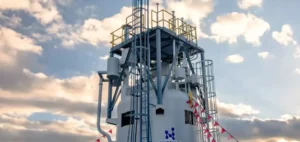The European Union (EU) is at odds over the issue of nuclear hydrogen. Indeed, the latter is currently in the final stage of tense negotiations on how to handle hydrogen produced from nuclear energy, in an effort to end a dispute that threatens to derail an agreement onrenewable energies more ambitious.
EU disagrees on nuclear hydrogen in renewable energy development targets
Negotiators from the European Union and the European Parliament are meeting to agree on the pace of development of renewable energy sources over this decade. It is the central pillar of the 27 Member States’ efforts to combat climate change. One of the key objectives of the renewable energy policy is that every EU country uses a certain amount of renewable fuels, such as hydrogen, as an energy source in industry by 2030.
However, the EU is currently debating which permitted energy sources for low-carbon hydrogen production should count toward renewable energy targets, and EU governments and the European Parliament are holding final negotiations to reach an agreement. Member countries still cannot agree on the recognition of hydrogen produced from nuclear energy in the objectives, a few hours before the start of these negotiations.
Highlighting the divergence of energy policies within the EU
At least eight other countries, including Poland and Hungary, are supporting France’s call for low-carbon hydrogen produced from nuclear power to be included in renewable targets. Pro-nuclear countries argue that nuclear power does not emit CO2 that contributes to global warming and that the EU should better support its contribution to climate goals.
However, at least nine other EU countries, including Germany, Spain and Austria, disagree. They argue that the EU’s targets should focus exclusively on renewable energy sources. In this way, they will be able to stimulate the massive expansion of these energy sources needed to end Europe’s dependence on Russian gas and reduce CO2 emissions.
The renewable energy law reflects a broader dispute between the countries. The question is whether EU policies should actively encourage nuclear power with subsidies and incentives or limit these benefits to other green technologies. The ambassadors of the EU countries did not manage to agree on a compromise proposed by Sweden. Sweden currently holds the rotating presidency of the EU.






















